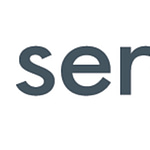Red Gate is a software company providing “ingeniously simple” tools for technology professionals worldwide. Founded by Neil Davidson and Simon Galbraith in 1999, it has annually featured in the Sunday Times 100 Best Companies to Work For, since 2007 as well as numerous other awards. The company now employs 250 people in Cambridge and Pasadena, USA.
Although it is growing, Red Gate tries to maintain its original start-up, informal culture by using a variety of tools and initiatives to encourage employee-led innovation and strengthen its engaged culture. Neil and Simon describe their founding philosophy, “When we founded the company, we started out with the following goals:
- Working with each other in doing something that was personally fulfilling
- Creating software that made a technical contribution
Running a company in a way that aligned with our moral values and us as people – this was a reaction to working in places where the humanity of the people in the organization was seen as an annoying inconvenience.”
The Book of Red Gate, created by employees to celebrate the company’s 10th anniversary sums up the essence of Red Gate, “How many genuinely open, collaborative, transparent companies are there, that actually practise what they preach about ‘no politics’ and ‘do what works’, that are built around a spirit of restless creativity, forward momentum and optimistic evolution… where everyone’s contribution is listened to and values…? … ‘What is so great about Red Gate?’ … Everything.”
The 13 red gate values
- You will be reasonable with us. We will be reasonable with you – we’re all trying to treat each other as we would like to be treated in the same circumstances. Sometimes the circumstances are difficult, but we will all still be reasonable.
- Attempt to do the best work of your life – We’d like you to achieve your own greatness and to be all that you can be. We’ll try hard to allow that to happen and we’d like you to try hard too.
- Motivation isn’t about carrots and sticks – Constant oversight and the threat of punishment are incompatible with great, fulfilling work. We believe in creating appropriate constraints and then giving people the freedom to excel.
- Our best work is done in teams – We work in groups and towards a common goal. The company is more important than the team, and the team is more important than the individual.
- Don’t be an asshole – No matter how smart you are, or how good you are at narrowly defined tasks, there is no room for you here if you’re an asshole.
- Get the right stuff done – We admire people who get stuff done. While there’s a place for planning, thinking and process it is better to try – and try well – and fail than not to try at all.
- Visible mistakes are a sign that we are a healthy organisation – What we do is very difficult, the current situation is hard to understand and the future is uncertain. Mistakes are an inevitable consequence of attempting to get the right stuff done. Unless we can make mistakes visible both individually and collectively we will be doomed to mediocrity.
- No politics – No gossiping, no intrigue, no pussy-footing around problems and no telling people what you think they want to hear whilst privately disagreeing. We will be transparent in our dealings.
- Do the right things for our customers – We believe that if we do what is right for our customers then we will thrive.
- Profits are only a way of keeping score, not the game itself – Focusing purely on the numbers is a sure way to kill Red Gate’s culture. We believe that if we focus on the game – building awesome products that people want to buy, and then persuading them to buy them – the success will follow.
- We will succeed if we build wonderful, useful products – Shipping something amazing is better than creating something average and to budget and on time. We cannot market, sell, manage or account our way to success.
- We base our decisions on the available evidence – Not on people’s opinions, the volume of their voices or who they are. When the evidence changes, we are prepared to change our minds. We will thank, and never shoot, the messenger.
- We count contribution, not hours – What you achieve is more important than how long it takes.
 Employee led innovation initiatives
Employee led innovation initiatives
As Red Gate grew, Neil and Simon wanted to keep the spirit of the start up they had created alive but perhaps working more effectively. Being innovative, supporting employees to be their best and create the best products became more and more important. With this in mind they created or gave their blessing to a series of employee-led initiatives that ensured Red Gate’s culture remained innovative.
An innovative change agent
Mark Wightman joined Red Gate in 2008 with 9.5 years in software development elsewhere. He found an organisation that was still operating in start up mode when it came to software development: disorganised, a chaotic process of development, which meant that projects overran and didn’t necessarily work as well as they should. It wasn’t intentional but many of the developers were straight out of university and didn’t know any better. Mark suggested Red Gate implement agile software development. With support from the CEOs, he took one development team and managed it using the agile process – high visibility and collaboratively.
Starting a Movement: Although they started off quietly, soon other teams noticed that Mark’s team were working differently, developing quicker and producing great new products. While there were sceptics, soon the outcomes spoke for themselves and other teams started adopting agile development. In total it took two years to migrate all the developers into the new ways of working.
Big Impact: As well as building higher quality software and quicker, the level of engagement has greatly increased. The teams are considerably more commercially focused, entrepreneurial and innovative.
Learning:
- How teams work using a process is not a one-size-fits-all. The process has to adapt to the team’s own context – give them the tools but let them decide which ones work best for them
- Focus on outcomes and letting talented people judge/decide for themselves how they can achieve those outcomes – in this way teams naturally challenge themselves to continuously improve
- Take time out – every couple of weeks or once a month (up to the team) they take time out to reflect on what they are doing and how they can improve it
Coding by the sea
In November 2009, CEO Neil Davidson, issued a challenge to Red Gate employees. He sent an email round the company, “If you fit the bill, have a sense of adventure, are willing to try something new and are free … You will be living in a house and you can’t bring partners. In return, we’ll pay all your expenses (including a small beer allowance), you’ll get to work with people you might not have worked with before, in a way you haven’t worked before, and produce something cool.”
The goal was to spend a week developing a product that could quickly be shipped to customers. A converted barn on the Suffolk coast was home for the week, while the team developed a new product away from the distractions of the office. The result was SQL Search, a plug-in for SQL Server Management Studio and was available just three months after initial development. Four months after over 10,000 downloads of the product were achieved. Red Gate are considering investing in a property to repeat this successful initiative.
Down tools week
Following on from the success of Coding by the Sea, Neil decided to open the challenge to the entire company. The first Down Tools Week took place in 2010. For a Week all current projects were paused and employees could work with whomever they liked on something different. Examples of activities included:
- Generation of new ideas for commercial products (usually including building and shipping a prototype version)
- Fixing problems with internal systems and processes
- Learning new technologies
- Learning new skills by working with different people
- Allowing people to scratch itches (‘I always wanted to try X’) without any expectation by the company of producing a commercially viable product
- Allowing people to do something for any other reason they like
Three examples of products developed during the week included:
- A test-tracking tool for testers to track their tests. They spent the week developing a demo of their web-based tool to show testers what more they could get from a web-based tool rather the tools they currently use
- An app for simple talk called ‘simplepod’, which works on the various different mobile platforms. It was developed and uploaded all within the Down Tools Week
- An Exchange-Space Analyser Tool, which helps administrators understand their space utilisation to maximise the space on their exchange servers including a novel scenario what-if planning application
Show & Tell:
The week culminated in a show and tell session open to the whole company. As well as profiting from new products and better systems, individuals benefited from learning new skills and networking from working people they don’t regularly interact with.
So Good, They Did it Again, and again…
The first Down Tools Week beat all expectations. It went so well that Neil and Simon decided to repeat it. Now three times a year the whole of Red Gate downs tools for a week using the same criteria as they did for the first Down Tools Week.
9 post cards
9 Postcards is an event that took place in November 2010 and was repeated in 2011. The initiative won Red Gate the Sunday Times Best Companies special award for Innovation in Engagement Practice in 2011. 9 Postcards fits in with the business planning cycle and is designed to test what everyone at Red Gate thinks of the Company. It was taken from an original idea [not sure this was entirely our idea!] whereby all employees are given 9 postcards – three to suggest ideas on how they could improve their own performance, three for how their area/department could improve, and three for ideas on how/where the whole company could improve. Joint-CEO, Simon Galbraith, would then review the postcards on suggestions for the whole company. Managers would look at the others.
Making it Work for a Growing Company:
As it was felt that there would be too many actual postcards for Simon to read, a developer created a tool for the forum where employees could post their ideas for Simon to review. While it was easier not to have the postcards, the negative is that ideas got ‘voted’ on [not voted on, but you could ‘+1’]. Simon reviewed all suggestions and then with other senior managers, decided which company-wide ideas would be undertaken and when.
Empowering Individuals:
Where ideas where small things such as putting a hook in the shower room, he told the individual to just do it and claim for expenses. So the exercise proved to be good for empowering people.
Ideas of All Sizes:
9 Postcards resulted in lots of little ideas that made a small difference. It did generate two or three big ideas that greatly impacted the company. Most people suggested solutions so it became the job of managers to work out what the underlying issue was.
One issue that received 10% of suggestions alone, was the website. Many employees considered it wasn’t what it should be. As a result, senior management committed a team of six people and associated resources to permanently work on the website – a large investment.
Another issue was the noise generated from the canteen, which was felt to be disruptive. Senior management decided to invest in reducing noise emissions by fitting doors and changing the configuration within the canteen.
Learning for Future Years:
- Response time is important. The analysis of the company-wide postcards took too long. Next time the response from the CEO will be within a month of the deadline
- Setting expectations to encourage employees to think big – scary and dangerous ideas – rather than ideas from the comfort zone
Sweat the small stuff day
In mid-September 2011, Dominick Reed suggested Red Gate have a Sweat the Small Stuff Day. He had watched a TED video and thought it was a great idea to stop work for one day and fix all the small, annoying things that no one ever seemed to have time to do in the daily course of working. The idea is that by fixing the small things, the whole organisation is better off due to the accumulated effects.
Getting Buy-In:
Dominick posted the TED video on the internal forum and was supported by Neil and Simon to organise it. To avoid any disagreements over what should be changed, ideas were initially posted on the forum so anyone could comment. Some ideas generated a discussion about how best to change things but most ideas just seemed like common sense. It was implicitly agreed that unless someone said ‘no’ that all ideas (including those which generated a discussion) could be worked on. Red Gate’s Sweat the Small Stuff day took place on September 30th and generated a whole host of small fixes around the organisation.
Some of the fixes:
- Red Gate receives over 10,000 searches a month on its website. A small group reviewed the most frequent searches and optimised them so that when customers do a search on the website, the most relevant results are returned quickly
- Changes were made to an end user license agreement. It wasn’t a controversial change but had caused problems, which are now resolved
- The word ‘synchronized’ was changed to ‘deploy’ across products and user/help manuals, which made terminology clearer for users
- Changing all the clocks in the building to display the same time
- Cleaning all the whiteboards that had out of date information on them
Lessons for Next Time:
The impact on the company was mixed most likely because the date chosen was too close to the launch of the idea. Lessons for the future:
- More notice so that individuals can propose more ideas
- Increased visibility post the event to celebrate and share what was done
Positives:
One result of the day is a general recognition across the company on individuals taking it upon themselves to fix small things as a matter of course. The day was generally felt to be worthwhile and Red Gate are currently considering whether to repeat it, possibly every six months.
Red Gate Tools to Build Engagement
The following are some tools that are fundamental to reinforcing Red Gate’s unique and highly engaged culture:
No More Performance Reviews: Instead of formal annual performance reviews, Red Gate uses monthly one-on-ones to encourage continuous giving and receiving of feedback. This two-way communication is taken very seriously but it is up the individual managers and employees to decide whether they prefer fortnightly or monthly sessions. At these sessions short and long-term goals and personal development are discussed.
Key Components:
- 360-degree feedback on each individual is gathered by managers before
- Individuals choose their own goals
- Managers are there to coach and support individuals
- The goal is to get to know individuals on a deeper level
- It is a focused discussion with a purpose rather than an informal conversation
- Individuals are encouraged to give feedback to managers too
- Two-way feedback is fundamental to Red Gate culture
Training for Managers: Managers are trained how to manage the sessions – acting as facilitators and coaches – communicating clearly, learning to be receptive to feedback as well as giving it. Members of the HR team also sit in from time to time to review the process and provide feedback to the manager on their own performance.
Q&A Sessions: Informal, weekly Q&A sessions with one of the CEOs held in the canteen and open to everyone. The joint-CEOs take turn to host and answer questions on anything. Each session is written up and circulated to the rest of the company.
Whiteboard Tours
Each project team and operational department (HR, Product Support, IS, etc) has a whiteboard updated with progress. The purpose of the whiteboard is two-fold – to give anyone in the company a snapshot of progress on a particular product or service, and to inform senior management. Whiteboard tours take place weekly, based on a five-week schedule of between 5-10 whiteboards, with each team’s segment lasting between 5-15 minutes. During the tour the team gives a quick presentation based on their whiteboard and field questions from senior management. These tours also give the teams the opportunity to ask senior managers questions or to discuss issues. At the end of the tour a review session is held amongst the senior managers, feedback is circulated back to the teams.
Feel Good Fund
The Red Gate Feel Good Fund was set up by the two CEOs, Neil and Simon, to help company employees mix with each other socially and to ‘feel good’. The Fund is administered and run by a central, cross-divisional panel of employees and not influenced by senior management. The team is responsible for organising the annual company day out as well as company-wide social events, and holds the funds, which pay for days out for smaller teams and groups and for the daily free breakfast and lunch to which all employees are entitled. Individual team managers are empowered to make use of their team’s budget however they choose – some teams prefer to spend it all on one big event (such as a trip to Disneyland Paris), while others prefer a series of shorter events (such as punting, team meals out, go-karting) throughout the year. The Feel Good Fund is also responsible for Red Gate’s Feel Good Fridges, which contain free healthy snacks and drinks.
Corporate Social Responsibility: Red Gate has a CSR team made up of employees who organise charitable activities and events.
Red Gate Goes Evil: Red Gate Goes Evil was a charity event day to raise money for Comic Relief. ~This won Red Gate the Sunday Times Best Companies Special Award for Innovation in Giving Something Back in 2012. The event not only raised a considerable amount for Comic Relief [about £2k], it also reinforced the Red Gate culture, when that informal, fun culture was turned on its head for a day. For Red Gate Goes Evil, everyone had to wear business attire to work, to pay for coffee and lunch (all proceeds going to Comic Relief), clock in and out of work, lots of bureaucracy was imposed in the shape of continuous emails with new corporate policies and separate toilets were assigned for senior management. What was originally meant to be a fun way to raise money, resulted in employees further engaging with the Red Gate culture when it was dramatically changed for a day.





